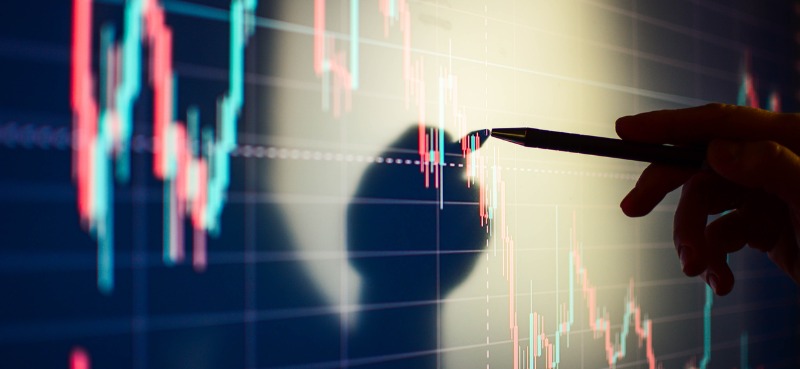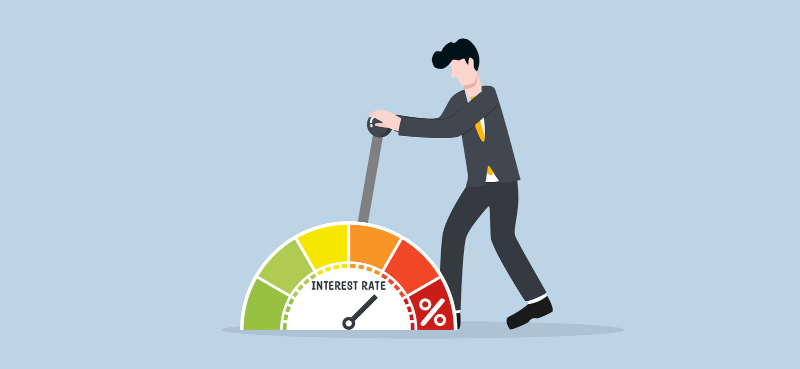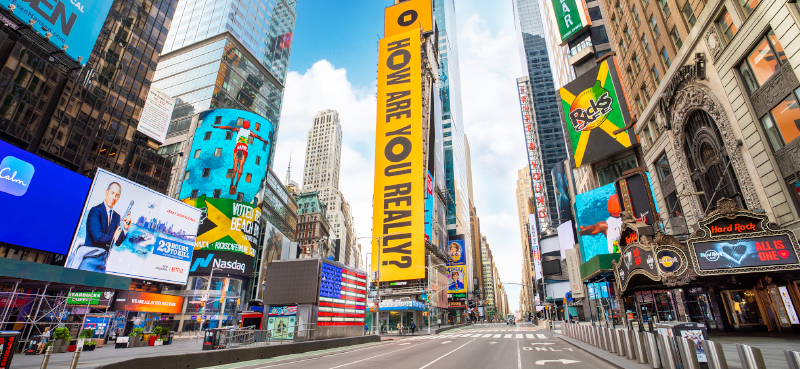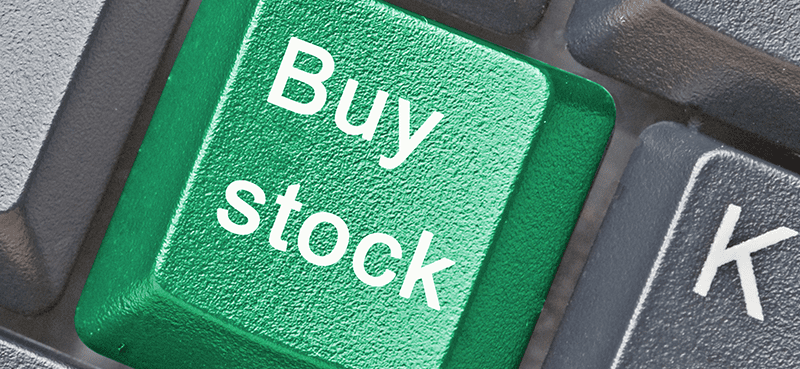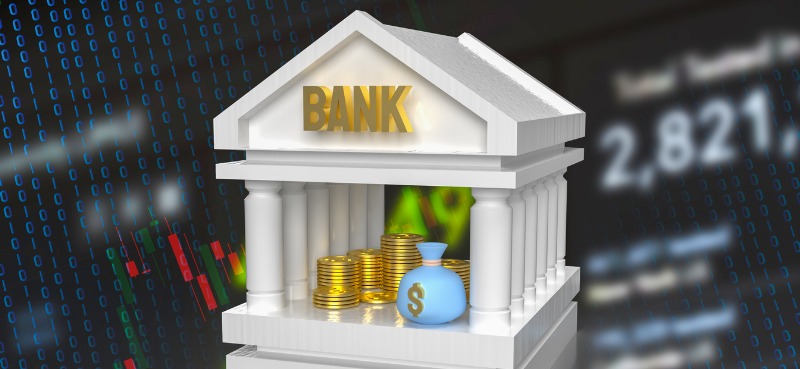We’re changing up the format a bit today…
Instead of the usual interview, I’m hosting a Q&A session. (By the time you get this, I’ll be on a plane to Vegas to celebrate my wife’s birthday.)
- Is the market pricing in enough future rate hikes? [1:15]
- What equity risk premium (ERP) is—and why it spells trouble for stocks [4:30]
- How to make massive profits during a market crash [14:00]
- Why I thought Goldman’s earnings were terrible [16:05]
- Are long field goals ruining the NFL? [22:30]
- Do I ever re-recommend old stock picks? [25:18]
Wall Street Unplugged | 961
A special Q&A Thursday: How to prepare for the market ahead
Announcer: Wall Street Unplugged looks beyond the regular headlines heard on mainstream financial media to bring you unscripted interviews and breaking commentary direct from Wall Street right to you on main street.
Frank Curzio: How’s it going out there? It’s October 20th. I’m Frank Curzio, host of the Wall Street Unplugged podcast, where I break down the headlines and tell you what’s really moving these markets. It’s usually interview Thursdays, but as you’re listening to this, I’m on a plane to Vegas with my wife. I quit. I’m out of here. That’s it, it’s over. Actually, I’m taking her there for her 50th birthday. She loves Vegas. I have some fun things planned, so looking forward to having some cool time with my wife because it’s been so nuts lately with me, with work, trying to provide as much updates as possible during these crazy times, and with her where she drives the kids to school every day, every day an hour each way, for four hours a day in a car.
Frank Curzio: This includes studying, helping the kids. So, it’ll be a nice getaway. Nice to dial back, have some beers, gamble, do some other cool stuff I don’t want to mention in case she listens to this. No, I’m not talking about going to swinger parties. Get your mind out of the gutter. But I’ll share the two cool things that we’re doing with you when I get back that I’m pretty sure she’s going to like. I hope she loves it. Just going to be a lot of fun.
Frank Curzio: So, today, different format, and I’m going to take some of your questions, since I continue to get a lot. Always here for you. Keep those questions coming, frank@curzioresearch.com. It’s definitely a time to ask, since the markets are all over the place, going up 5%, 6% in two days, and crashing 15% before that, up and down. Have we bottomed? Haven’t we bottomed? Are we’re going to get a rally to the end of the year? What’s the elections going to be? What’s China, Taiwan, Russia… I mean, keep going and going. Inflation, right? There’s so many things going on with the markets, and I know that you have lots of questions. That’s what we’re here for you for. So, feel free to ask them at frank@curzioresearch.com, and let’s get to someone’s questions now, starting with one from Joe.
Frank Curzio: He goes, “Frank, do you think the market is pricing in future rate hikes and all the negatives?” He says, “Valuations are becoming cheaper. Should we sell everything, or do you believe we still hold some long positions, at least in stocks? Thank you for everything that you do.” Long-term sub, Joe. So, it’s actually a great question. I still have long positions. You’ll notice in my portfolios for the paid products, we still have some positions that are long, and protecting them with… That’s why I said for Moneyflow Trader and long dated puts, which by the way, when you see the market go up like this, this is perfect. You can get better pricing on these. We’re looking out a year past. It’s why you can’t show at the markets, guys. I mentioned that on Tuesday’s podcast.
Frank Curzio: You can get wrecked. You can be right long-term and get wrecked in a short-term. Long dated puts, you don’t have to worry about it. You have a year. So, you’re not crazy if this thing goes up and down. You’re going to lose the money that you’re putting into it, but you know, especially over the next three, four, five months, it is going to be nuts with this market, with the Fed. Are they going to stop, they’re not going to stop? They’re definitely not lowering rates. Is the market going to go up even when they do stop from here? Is the housing market going to get better? No, but yet, they’re going up another 1.5% in the next what, month-and-a-half? In December? Probably, which is crazy. But I’m going to tell you something because I hear a lot about the valuations, and I told you about the earnings picture. I won’t cover that again.
Frank Curzio: I don’t know how we’re going to get to 240 in earnings when we were at 160 in 2019. Interest rates were lower, below 2%. We’re going to be at four-and-a-half percent at least throughout 2023 on average, at least on average 4.25%, we could assume; yet, they’re expecting earnings to grow 7% even though we’re taking the 11 trillion out of the market, where Fed is hiking rates tremendously. You’re not going to have the Fed help there, buying bonds, anything. I don’t know how we can get through that, and eventually, we’re going to see earnings. They’re calling it Earnings Armageddon. You’re not seeing it now, which is fine, but you are going to see it. You are going to see earnings come down considerably, and that’s not being priced in. You may be looking at those valuations saying, “Well, we’re trading at 17 times forward,” and it looks like that, right? 17, 16 times forward earnings, and that’s the average when the market’s usually growing at 8%, and we’re projected to grow 7%, 8% in earnings next year, which is definitely not going to happen, especially X-energy. Forget about it.
Frank Curzio: Now, you look right now, I think we’re up 2% on the year. X-energy went down 4%. That’s a big component since energy is rising tremendously. It’s one of, I think, 11 components of the S&P 500, and still a small component relative to the rest of the industries, especially technology. But I want to talk to you about something called equity risk premium, and stay with me here. It’s ERP. That’s the return investors expect to make over the risk-free rate, the 10-year. So, if you look back at history, stocks used to generate 8% return annually. That’s historically. With the yield on a 10-year averaging less than 2% since 2010, it translates into people should expect returns of 6%. I don’t know what they are. I know the last three years were fantastic, before this year, much, much higher than 6%. I can’t go back to 2011. I know the market has done very, very well. But on average, that’s what you would expect.
Frank Curzio: So, what this does, what this gauge does is you want to make sure you’re getting compensated for the amount of risk you’re taking, which is all about investing. That’s what we do here, the risk-reward. I mean, you don’t want to risk 30% to gain 15%. You want to risk 30%. Sometimes a lot of it stops at 35% because they expect these stocks to more than double over 18, 24-month period, maybe a little bit longer. So, every investment should always be about risk-reward. Should I do this? Now, that’s what equity risk premium is. If you look at past crashes, the Fed almost, I want to say 100% of the time, I think it’s 100% of the time, but the Fed almost always lowers rates. This leads to in higher ERP, equity risk premium for investors, which is good for equities because they’re like, “Okay, the market’s coming down. Rate’s coming down. Now with that 8% return, I feel like I could generate more of a return because stocks have just fallen 20%. Interest rates are lower.”
Frank Curzio: However, during this crash the Fed is still tightening, which is unprecedented, and they’ve never done, never done, never done when the market is down this much, continue to tighten and say, “We’re going to tighten over the next three to six months,” which is insane. Usually, it’s the reverse. So, what does it mean? It means, it’s causing the 10-year to rise, and there’s the risk-free. You can go to the two-year, which is about 4.4, but let’s use a 10-year because that’s how we usually calculate the equity risk premium. It’s important that you know this because ERP is something that’s going to come up a lot next year. You ain’t really heard about it now, like two years ago. Now it’s everyplace.
Frank Curzio: I’m telling you, it’s going to be something that they mention a lot because this is why it’s a big deal, because when you look at stocks, it’s all about risk-reward. So now, since the Fed is still tightening, it’s causing the 10-year risk-free to rise. So, it’s about 4% right now, but the ERP is actually going lower. So, that premium is going lower. It should be going higher as stocks crash because the Fed should be lowering rates, but their rates are being kept high because they’re raising them. Again, this is unprecedented. We never see this. So, in short, it might sound confusing. Investors are not being rewarded for going long right now. They’re risking their portfolios to generate about 4% annual returns, having taken the 8% historic by what the market goes up, minus the 10-year yield. That’s 4%.
Frank Curzio: So, based on this metric, stocks are still 25% overvalued dating back to 1980 when you’re looking at this metric, and that’s what I think people need to understand, because every market that we’ve been in for the past 12, 13 years, which is a lot of the experience you’re seeing on analysts that come on, having 10 years’ experience in any industry is a long time. I have 30 years, but 10 years is a long time. 12 years is a long time. But during that time, these analysts have never been part of a market where interest rates are rising and the Fed wasn’t there to pick you up. 2008, they picked us up. Not only did they lower rates tremendously, and same in COVID, but they injected an unprecedented amount of money into the markets. That’s gone. The Fed’s no longer doing that. You have to realize that.
Frank Curzio: So, all these comparisons dating back can say, “Well, the market’s down 20%. It always comes back, and it’s good,” you have to be careful about comparing it because we’re in uncharted territory. But I think the ERP, it’s a huge deal I feel like few are talking about, because like I said, at the end of the day, investing is a 100% about risk-reward, and why risk your entire portfolio, which could be 20% to 30%, in the middle of what? Do you see China, Taiwan talks heating up again? Are we going to get involved with that? Do you think the Russia war’s going to end? Inflation core CPI still hasn’t peaked, still hasn’t peaked, which tells you the Fed’s going to go nuts and continue to raise rates like they said they’re going to do. Do you want to risk your entire portfolio during this environment where you could just sit back and earn 4%?
Frank Curzio: You can say, “Well, inflation’s 8%.” Inflation’s going to go lower. It’s not going to be 8% next year. It’s going to go lower, and it’s all relative. I mean, you can include the inflation fixture number in if you held in cash, if you decided to buy stocks and you’re down 20% plus the 8%. So, it’s all relative no matter what you’re doing, but taking inflation out, you could generate a 4% return for risk-free, which is pretty good. I mean, people would die for that return three, four, five years ago, for the last 12 years. Risk-free 4%? That’s a great return. It’s such a great return that 4% risk-free was kind of the return during the housing crisis when interest rates were low and people would say, “Hey, let’s create these crazy AAA products. It’s risk-free.”
Frank Curzio: When you create risk-free return of 4% when interest rates is zero, you get a trillion dollars into you from everywhere. That’s your ultimate goal, insurance, everything, all these massive pools of money. So, now it’s 4%. Yes, everything’s going higher. Interest rates are going higher. The two-year’s even higher at 4.4%. Well, you’re not getting compensated for the risk you’re going to take, and this is one of the first times you see this discrepancy because the Fed is doing something that it’s never done. It’s raising rates in the face of a market crash. You say, “Well, Frank, I want to earn a lot. I want to buy the largest stocks, and a lot of them are pretty cool.” That’s fine. You keep a couple of them, but don’t do it because of the yield. The average yearly S&P 500 is 2%. You’re getting 4% risk-free.
Frank Curzio: Why risk going into a consumer staple stock or going into a REIT with the market crashing, the housing market crashing, when demand’s falling off a cliff, where people are going to start… They’re starting now. They starting to cut back spending. You’re going to see it during the holiday season. Why take on that risk? Something you should think about because that’s how money comes into the market. When you look from a risk-return or the ERP metric, an equity risk premium, we’re still significantly overvalued. Those of you quoting and looking at 17 times being cheap for this market, that’s based on earnings going to 240 next year, going up 7% after going up 2% this year.
Frank Curzio: I don’t know how that’s going to happen when the reason we went from 160 to 220 is because you injected 11 trillion into this market and load rates are zero. Rates are going to be 4.25%. I said this earlier, and they’re doing everything they can to remove this liquidity out, shrinking their balance sheet, no longer buying bonds. How do you expect earnings to even go above 200, even go above what 180? We have buybacks coming. That’s good. They’re cutting costs dramatically. You’re seeing it right now. They’re cutting costs tremendously, these companies. They’re going to do everything they can. Believe me. I’ve seen it. In 20 years in predicting, “Wow, earnings are going to come down,” they almost never come down because these companies can get creative, but they can get even more creative, especially with borrowing money to buy back. They can’t do that stuff no more because rates are too high.
Frank Curzio: At the end of the day, you want to see demand, and demand is falling like a cliff in so many industries, not all industries, but most of them, one by one. The car industry, man, and the wholesale levels, prices are coming down tremendously. I just got an oil change. I got an oil change a little while ago. Guy charged me the same price he charged… He charged me the same price as when I went and I got an oil change about 40 days ago. That’s how much we have to drive our freaking car, my wife’s car going back and forth, and despite charging me the same amount, I got oil that was about $15 cheaper. Still really good. I just didn’t get the best because I’m going to sell the car, so it’s really good oil. I’m just not putting the ultimate premium in it. I said, “How come you charge me the same?” He goes, “Well, prices are up.” I said, “Actually, prices are up that much for 40 days?” He’s like, “Yeah. Well, everything’s going up.” I said, “No.” I said, “Oil’s not going up.” I said, “Oil’s actually down. Why are you charging me more?” So, I know he is bullshitting me, but you’re seeing this across a lot of businesses. I talked about my car and just trying to sell me everything and putting line items in there that I didn’t agree to, that I didn’t even know about, trying to sell me bullshit. I’m not going to have the car for three years. You want me to pay $1,500 to get extra wear-and-tear my tires, which might include certain things, but most things it doesn’t? That’s what they’re trying to do, and you’re seeing more and more businesses trying to squeeze customers, and that’s going to result less… Now, I’m not going to that place ever again. I’ll never go to that place. There’s about five of them on the island that I can go get an oil change.
Frank Curzio: I’ll never go to that place again because I know he’s bullshitting me. Not in 40 days, you shouldn’t have raised prices by 12%. Absolutely not. But you’re seeing this. You’re seeing companies start to squeeze, and you’re going to see people cut back and demand fall off a cliff. So, I don’t know where these companies are going to find those earnings from. I have no idea. You can say, “Well, if the Fed stops…” All right. If they stop, we still have rates at four, four-and-a-half percent. Does mean that people are going to rush to buy houses? No. Rush to buy cars all of a sudden? They’re going to feel better? No, no, no. They have to lower rates, which isn’t going to happen until 2024. We’re going to see periods we saw this week of two straight days where you get 6% huge surge in the markets. Again, we see 10-to-one advanced decline ratio. That’s not normal. That only happens during crazy markets and volatility. You don’t see the whole entire market go up like that, and that’s what we saw two days in a row.
Frank Curzio: But be careful here because you’re not getting paid that premium you deserve for taking on that risk, for risking your portfolio, and a lot of portfolio managers look at that. They look at that metric and say, “Wow. Well, it might be better to go to bonds, or I might be going to safety.” As far as your long positions, stocks that you think that you’re going to hold long in three years, yeah, hold some of them. I mean, you’re getting a nice bump. You’re going to see the market go back and forth. You don’t want to be 100% long, 100% short, and you definitely don’t want to short the markets. If you short, you can get wrecked. So, as I said, buying long dated puts, it is such a fantastic strategy right now with all volatility that’s coming in a month ahead, in a year ahead, because I don’t care about these huge surges in two, three days, which you’re probably going to see in the back-and-forths.
Frank Curzio: You should be long a few stocks, stocks that you’re going to hold really long-term that have good fundamentals. We still have long positions. I would never say go all cash or sell everything or just go all in, don’t even care, because you don’t want to leave yourself exposed. I know greed factor comes in and you want to go all in and make 80 times on your investment. I get it. Everybody wants that, but you should do that with a small portion of your money. Everyone, I don’t care if you’re 95 years old, maybe it’s 1% of your assets or 2% of your assets compared to maybe 10%, 15% of your assets if you’re younger because you have more working power. You should have exposure to something that could make you filthy rich at all times.
Frank Curzio: That’s why I think crypto and Bitcoin is going to surge now that trillions in assets, it’s for the first time going to be invested. Have the option to be invested in crypto, in Bitcoin and Ethereum, and a lot of the bigger names. That’s what people want with their risk portfolio, the shot of making 20, 30, 40X. That’s the goal. That’s really the goal. That’s really what you want, but the more risk, the higher expectations of that return, the more risk you’re going to take. But be careful here. These crazy markets, I wouldn’t sell everything, but Moneyflow Trader if you can. We lowered the price of that. If you want that, that’s fine. Genia is awesome. We’ve had a lot of people take us up, one of our best promotions that we did because we lowered the price considerably, and it makes sense in this market. I think you’re going to be happy, and it’s going to be the best product you ever bought because it complements everything else that we’re doing on the long side, and that’s what you need. So, great question.
Frank Curzio: Now, let’s move to the next one, and this is from PJ. He goes, “What did you think of Goldman’s earnings?” I thought they were horrible. I mean, you might not think that because you’re looking at the stock price and, “Wow, this thing popped 5%, 6%, 7% when they announced it,” and to be fair, we sold it in portfolio a few days before that. I would’ve liked to sell it on the 7% rise, but you have to realize because it’s all about beating these expectations, beating the earnings expectations, which I think is hilarious because here’s something that’s hilarious when you look at Goldman. So, equity underlying revenue down 80%, investment banking revenue down 57%, this is year-over-year, and that was compared to in year-over-year, that core, there was a 90% surge in investment banking revenue.
Frank Curzio: Consumer banking did great. Consumer banking for Goldman, isn’t that weird? But revenue’s up 95%, pretty big division, 740 million, so helping to fuel 18% revenue increase in consumer wealth management segment, which is a new segment I’ll get to in a minute. They said that was due to higher credit card balances, higher deposit spread as a result of rising rates bolstered by growth. If you’re investing in Goldman Sachs, you’re not investing… You don’t want to see it based on their consumer and wealth management segment to where, which is consumer banking, that it’s going up from rising interest rates, because the competition in that market of offering a little bit higher rate here or there is enormous. There’s massive… Goldman Sachs has the greatest competitive edge in investment banking, financing, contacts, the richest people in the world. They don’t have a significant advantage. They don’t have this proprietary advantage like they have with their trading systems and all this stuff and everything.
Frank Curzio: They don’t have that within their consumer banking unit based on rates, where Robinhood, I think, don’t quote me on this, said, “Put your money there, and the money market’s 3%,” or whatever. I mean, it’s highly competitive. So, I wouldn’t be buying Goldman on that. I’m looking at every other segment, which consumer wealth management tanked by 84%. Financial advisory revenue declined 41%, and that’s a billion-dollar business. But if you’re looking altogether, earnings for Goldman Sachs, when they reported, they’re going to say, “We beat estimates. We blew out those estimates. We beat them by…” Earnings from 45% year-over-year, that’s how much analysts lower these estimates into the quarter, and what you’re seeing is, holy shit, they beat… Look at this beat. Goldman knows what they’re doing. They’re great. They beat a number that analysts created. I won’t say out of thin air, but that’s what the estimates are. But at the end of the day, earnings fell 45% year-over-year, and going forward with investment banking revenue, where is it going to come from?
Frank Curzio: You saw Intel’s Mobileye, right? I mean, that’s normal. 50 billion it was last year. Now, they’re going to IPO at 16 billion, a little bit more than what they paid for it at 15.3 billion in 2017. That’s a new reality. So, a lot of their bread and butter industries are down, and over the next 12 months with rates rising, the market conditions, the way they are, you think that those businesses are going to get better? Maybe a tiny bit better. Doesn’t feel like a kitchen sink quarter, especially since the stock went up. So, everyone’s happy Goldman Sachs beat estimates. Again, everything’s down 45%. Sales fell 12% year over year. More important, Goldman Sachs said they’re realigning its business, which includes new segments, asset and wealth management, global banking and markets, and platform solutions, so those three.
Frank Curzio: As someone who covers earnings pretty much my whole life, companies don’t realign business segments during good times. There’s no reason to if earnings are going higher, and creating new divisions, they might if you see this massive spike like Zoom or something like that in one division where you have COVID and all of a sudden, revenue went from… Even Moderna, which is another company where you see revenue go from a few million to billions in two quarters, to 10, 20, 30 billion, but you really don’t see companies realign business segments during those good times. I mean, they do this usually to mask something or to use it as a way to benefit the company’s bottom line. If that didn’t happen, they wouldn’t do it. They’re not like, “Oh, we’re going to create these divisions, so we’re going to report less earnings to you.” Doesn’t work that way. They have one number, earnings. Beat that estimate, and you’re fine.
Frank Curzio: So, I don’t like the fact… I thought that was a negative, but for me, I’m looking at the same business segments. I like Morgan Stanley better. I think Morgan Stanley’s a better buy here. If I had to buy an investment bank, that’s the one I would buy. These guys have been dead on. I haven’t seen too many that have been dead on like these guys, especially with the market downturn and this rally. I mean, these guys are ahead of the market. They see it clearly. Maybe that’s not always the case, maybe it’s sometimes the case, but you have to ride the hot hand. These guys have been really, really right, Morgan Stanley, really, really right. All and away down, so far and way up, and they have positioned themselves based on how they believe the market’s going to perform over the next six months, and they’re well-positioned for what’s going on.
Frank Curzio: They said they were long a few days ago for the market rally this week. They were really telling you the market was going to fall for, I would say, at least six months now, estimates much lower in the street. There hasn’t been too many that predicted that. Yeah, everyone’s low in estimates now. These guys were there first and continue to lower. They’ve been right. I mean, this is a company that pays a 4% yield that’s basically safe trading below 10 times forward earnings, so it’s a better yield, a little bit more expensive than Goldman, but I just think they’re better positioned. They deserve that premium right now. For the first time in a long time, I’m going to say that. I think they deserve a premium over Goldman. They’re doing a much, much better job. It’s going to result in more business pushing their way. But I would buy Morgan Stanley here instead of Goldman Sachs.
Frank Curzio: Okay, let’s get to a couple more really quick, guys. Let’s get to one from Martin. He says, “It’s a pressing question. The markets are in turmoil, looming interest rates, seeking generational change, inflation is high, and commodity prices are low. What I’d like to know is, do you think long field goals are ruining the NFL game? I’ve read that almost 25% of field goals are from 50-plus yards. It’s only a matter of time before this becomes 60-plus. Does the red zone even matter anymore? To combat this, should the crossbar be made higher and goalpost narrow, or do you like this aspect of the game? Finally, with the Eagles undefeated, have you booked your trip to Arizona yet, which is where they’re having the Super Bowl? As always, Frank, like all your subscribers, thank you for all the tireless work you do and your staff does for us. All the best, Martin, and subscriber to CVO, MFT, CRA, DSC, and Unlimited Income.”
Frank Curzio: I really appreciate that. Thank you so much for all the support, Martin. Really quick, I’ll answer the sports question here because I love answering sports questions. I don’t get them anymore with the market going crazy. I like long field goals. The reason why you’re seeing most field goals 50-plus is because when they’re in range of either 30 or 40. So, say if they’re at the 25-yard line to the 35-yard line, or inside of there, they all use statistics. They all use the data, they all use the numbers, and it shows that you should go for it every time instead of kicking a field goal. So now, it’s pushed it back to even further, but I kind of like it because some of these field goal kickers are banging them. Last week, 62-yard field goal. Holy cow. Man, it’s awesome. It’s really cool when you see field goals like that, but I think that’s awesome.
Frank Curzio: No, I didn’t book my tickets to the Eagles. I’m very happy. This is one of the best teams that I’ve seen the Eagles ever have in terms of just full offensive line, just every part, offensive line, defensive line. They never really had great, great quarterbacks. Now they have great quarterbacks. They’re getting interceptions. Their quarterback is doing great. Their running back, their wide receivers, they have two wide receivers where they can’t be guarded one-on-one, and they’re both great route runners, and they just don’t run deep, one of the best tight ends of the game. They have everything in place, but I do want to see them play some better teams. Dallas is good. They got a good defense. Dallas played good last week. Third quarter, they came back after they were getting smoked.
Frank Curzio: The Giants I don’t think are that good either, but I’d like to see them play a really good team, and also like to see them get the kicked out of them too. I always like that with teams because it just puts you in perspective where, one, you could handle it, and it’s going to make you work 10 times harder, and you understand that we need to get much better if we’re going to go to the Super Bowl and win the Superbowl, especially with Jalen Hurts, who’s never been there before, and every big game that he has played in… I mean, he’s amazing. He’s doing a great job, but even in Alabama, a lot of the big games that he played in he did not do well in, and you need that experience. So, no, I didn’t book to Arizona yet, but I will be if they do make the Super Bowl, so I’ll be booking late. So, I really appreciate all the questions, and more importantly, the support, Martin. Thank you.
Frank Curzio: One last one here is from VJ. He goes, “Frank, I hope you’re doing well. I have a question and a potential request. I hear about the Fed interest rates, these risks in the market. I had a thought. If we really are long-term investors and the market goes down, say, 20% or more, would you think of re-recommending stocks, say, like Alcoa for CRA, all the stocks with CVO, or even add more to other positions? Would that be a better strategy than adding a new stock?” He goes, “Number two, this is a request. I’m well aware of my timing. I was a lifetime member to Moneyflow Trader from launch, and last year, I actually switched to Curzio Venture Opportunities, and this is after a few years of losing money.”
Frank Curzio: He goes, “Rightly so, as it was a bull market, and Genia is a really great analyst, but it was tough market. Now I wish I had MFT. Can you share the offer for three months with me, as it might make more sense for me to be a Curzio Lifetime member than paying to one more backend newsletter? I understand the irony of asking for this, and maybe my interest is really the contrarian indicator, I hope not, given my history with MFT, but it may be time for a market downturn has passed.” He goes, “Thanks for all you do. Take care. Regards, VJ.” VJ, one, I really appreciate your honesty in terms of the product. Yes, I will offer that. I am coming out within, I would say, four to six weeks, just have something else that we’re launching first, in four to six weeks with a Curzio One offer.
Frank Curzio: We haven’t opened up the Curzio One membership in over a year. That’s a membership to all of our products and services and everything we produce in the future. This has become a massive, massive benefit for people because a lot of people didn’t want to buy MFT, and I don’t blame them. The market was up. You could say it’s an option-based newsletter. It was always very, very easy to buy long dated puts, and it’s simple. If you did it twice, you’d master it. It’s not that difficult. You could do your online portfolio, your online brokerage firm. You could do it from your phone, your computer, whatever, just like you could trade regular stocks. But MFT is kind of like when you see the market going up, nobody really wanted it. With the Curzio One, it forced you to have this, and now a lot of these members have emailed me and said, “Thank God I have it,” because they’ve done tremendously over the past year, and even during COVID when the market really crashed, I think she reported a 500% winner in a couple months or something.
Frank Curzio: So, Genia kills it, and I know that volatility the market’s going to be nuts going forward. So, I appreciate your honesty, and I don’t think it’s a contrarian indicator. I just think you got your ass kicked in that newsletter for a couple of years, and I understand that. I’m the first to say it, and the reason why, it’s my fault. That’s my fault, not Genia’s fault. I created this product believing that earnings topped out in the market was going to crash, and if you see 2018 to 2019, 2018 reported $160. That was the total earnings for S&P 500, and 2019, by year-end, and that’s just before COVID, we were at 159. So, we saw no earnings growth, but the market surged in 2019, which was a huge surprise. It surged in 2019, even though earnings didn’t grow.
Frank Curzio: That’s when I thought this was going to make a lot of sense, and then we had COVID, and it didn’t make sense at the beginning, and then you saw this big, big freaking bull market post-COVID. So, it was me creating this product, trying to do the right thing, and you can never time the markets, obviously, perfectly, but now it makes a lot of sense. So, of course I’ll honor that, even the Curzio One membership. Please call me. I know you’re a subscriber to almost all products, and I’ll make sure that you get a really, really good deal on that because that’s what we want to do here. Whatever products you own, we take off that price so you’re not paying. So, if you paid for some of our products, and some of them can be as high as $5,000 or $3,000 to even $100, if you go to Curzio One, which is the full membership, you deduct all that you paid off that full membership, which is cool, because we don’t want to charge you twice, but it also opens the door to special private placements, much smaller ones that I get into.
Frank Curzio: You’re going to get in at the exact same price I’m getting into. There’s no advantage there, and just certain access just to brokers I use, and again, I don’t get paid by these guys, and the metaverse ideas and stuff that we’re seeing, you’re going to get a lot of advice on that coming up. So, I’m going to have a nice report, probably in a week or two, for Curzio One members just to highlight what’s coming up, especially a special private placement, which is very small, that I think a lot of you are going to like and get into. So, I’ll offer you special pricing on that.
Frank Curzio: The last part here was, you were talking about adding to positions, or re-recommending positions. Of course. Everything’s on the table. I mean, right now, you guys know that I’m bearish. I’m worried. I told you why, but if the Fed comes out tomorrow and says, “Hey, we’re going to start lowering rates next month,” I’m going to be bullish. It’s all about the data. So, I’m not going to not get into a company like Alcoa that we sold, and it sucks. We were up a lot on it, and it was a great pick at the time, and I know it fell and we sold it for loss, but if I believe that that stock is just right at the time, I’m going to re-recommend it, absolutely. If I think the reason why I’m selling it or the reason why I think a market or a sector or a specific stock isn’t going to do good, if that’s erased, I’m going to re-recommend the stocks, or I’ll recommend new ones.
Frank Curzio: So, you might see new ones. You’ve seen me recommend… If you’re a long-term subscriber, I recommend stocks several times. So, yeah, it’s all based on data. It’s all based on what the companies are doing, how they’re cutting costs, how they’re positioning themselves, so higher interest rates, and then going into the future. I think it’s 90% now, something like 90% of the CEOs that were surveyed, I forgot which survey, a very popular survey said that they expect a recession now and by next year, and if not recession, it’s significantly tough market conditions, which is good, which means they’re going to be pulling back a lot. They’re not going to be spending much as CapEx.
Frank Curzio: This is the time. This is why you’re seeing so many companies lay off workers. They’re in defense mode. They’re not an offense mode. The only offense you might see is they’re going to try to buy back some of their stock so some of them have good balance sheets, only because they need earnings higher because that’s how they get paid, a lot of these guys, incentive bonuses and stuff like that. It’s in their stock and they want to see their stock go higher, so how do we get earnings higher and higher and higher? That’s why you restructure divisions like Goldman’s doing and buying back stock. At the end of the day, these companies have to prepare. They have to be safe. It’s going to be a really tough market going forward.
Frank Curzio: I mean, it’s tough right now. You’re seeing demand structure across so many industries, and rates are going a lot higher. So, I would recommend anything I think that you can make money, that I can make money on. I’m going to do it, whether that’s a previous stock, an old stock, or a brand new one. You’ll see new ones because of my network. I’m getting ideas from so many people all the time, some people that I trust that have made money in the past. I get tons of ideas from everybody all the time, but really, when I look into it, it’s ideas that I know that the people that are giving me are investing in it. I know the price they invested in it. I’ll read their thesis. I’ll dig in, and I’ll do all my own research, and I’ll say, “Wow, these guys are right. I really like what they’re seeing,” and that’s how you get a lot of these new ideas, especially in Curzio Venture Opportunity, or recommend really smaller stocks and microcap stocks in that newsletter.
Frank Curzio: So, yes, you will see me re-recommend a stock if I think it’s going to go higher and I think it’s perfect timing. So, absolutely. So, thank you so much. Lots of great questions. Again, I’m going to enjoy my time in Vegas, which means for Frankly Speaking, and Frankly Speaking is for all paid subscribers, a special podcast you can’t get that on iTunes. You get it from us, got to subscribe to one of our products, which a lot of you who listen to this podcast do, but Mr. Daniel Creech will be taking your questions. So, send them in, daniel@curzioresearch.com. I wish he was here. This way, he could say his own email address because I always make him say it, but daniel@curzioresearch.com, and it should be pretty cool. So, he’s the one that is going to do Frankly Speaking on Friday, and I’ll see you guys next week. Take care.
Announcer: Wall Street Unplugged is produced by Curzio Research, one of the most respected financial media companies in the industry. The information presented on Wall Street Unplugged is the opinion of its host and guests. You should not base your investment decisions solely on this broadcast. Remember, it’s your money and your responsibility.
Editor’s note:
As most of you know, Frank sees a crash coming. A big one. But crashes don’t just clean people out… they also mint millionaires.
If you follow the simple Moneyflow Trader strategy Frank recommends in today’s show, you can not only protect your wealth—but potentially book a huge windfall in the coming months. Learn more here.


